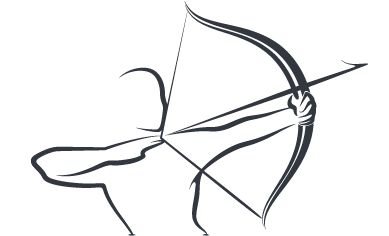When asked 'How Users Read Over the Web?', Jakob Nielsen, in 1997, responded: “They don’t. People rarely read web pages word-by-word; instead, they scan the page, picking out individual words and sentences."
His research suggested:
- Only 16% of readers start reading from the beginning of the article; the majority, around 79% first scan, then read.
- Reading from a computer, laptop or tablet screen is 25% slower than reading from paper.
Nielson, the user experience designer, found out that the ‘first’ thing that is noticed is that people scan in the F-shaped pattern.
They Actually Scan!
They read the headline-bit of Summary, then go to the bottom (left-aligned top to Bottom) of the page to see if there is something interesting -after this, they might go across from left to right, around the centre of the page.
People who read print feel like enjoying a feast, they try to make the best of everything in hand and are passionate about the work taken to read, while online readers like to snack out pieces of information from the screen and are sometimes lazy and impatient. There is a buffet of food, and they want to taste everything.
Difference between- How People Read in Print and How People Read Online
- They are completely different media-they are completely different physical things.
- A printed document could be a book; it could be a magazine, a newspaper. The reader can carry it along on a journey, in a restaurant, on a lawn or in a café.
- The most common way to read a printed work is from front to back.
- While reading from papers, readers are in a more relaxed mood and posture.
- They don’t need to rely on a power source (Saved from the embarrassment of ‘Battery Gone!’)
- Eyes are less fatigued while we read from papers, as it has no backlight.
- The feeling of Pride-Possession is always there, as you are a reader, rather than a user. And there are no access issues practically, as the reader owns the book/text.
More on Online Reading of USERS
- Electronic devices are a luxury or a possession that one has to earn.
- Depending on the device that could be attached to a computer, one might have the luxury of having a laptop, tablet, etc.
- Having to rely on the power source and the dependency are crucial in online reading.
- Eyes get more fatigued as there is a backlight
- Accessibility Issues can be there, as not everyone has access to the Internet all the time, and limitations might be there with the possession of devices too.
- The literacy/education levels of the online users are varied and cannot be predicted, while the paper readers can be generally adjudged by their choice of reading material.
- Slow Internet, Devices, someone might have a disability, there may be a physical barrier to access web/devices; therefore, the designers or makers have to customise accordingly.
One important difference between Online and Print Content is the 'Real-Time Authenticity'. The Newspapers often have a phrase saying 'At the time of going to the press...' and this speaks of the limitation of the print media. However, the same newspaper will definitely update the 'online version' of the same story, the moment an update is received.
'Real-Time Content' is the prominent attribute of Online Media, while print has its limitations about this. Web-Based Content cannot afford to be 'stale'; it can not have deterioration from the 'current' time.
P.S. - Some Random Points:
Question: Who are your readers?
Response: Ask Yourself!
They are the USERS of the website, and to have a basic understanding, talk to the people who deal directly with them as you make content, not for yourself, not even for the company, but for the USERS.
Demography, Age, Gender, Family Types, Education/Literacy Level, and Job-Business information is needed to be known or to be assumed ‘accurately’.
Their literacy-education level could be different to yours.
There might be access issues: Access to the Internet (Facility and Speed too), and someone might have a potential disability, such as a barrier to accessing the information on the web.
The worst thing that we can do is to write the content that we think our users will understand and like because WE understand it.







